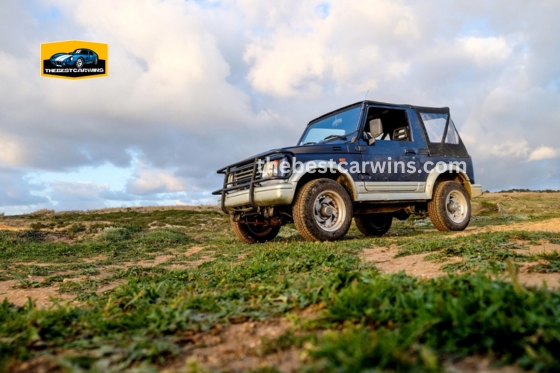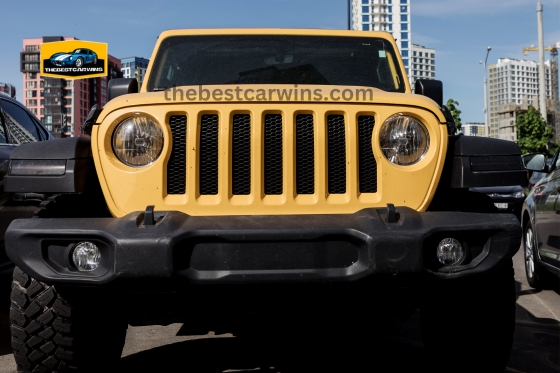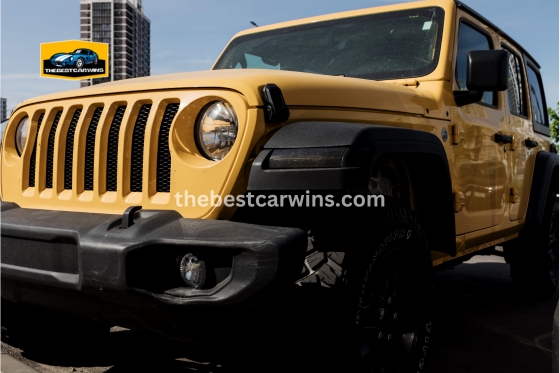
How Much Does A Jeep Wrangler Weigh
Introduction:
How Much Does A Jeep Wrangler Weigh. The weight of a Jeep Wrangler is an important consideration for many enthusiasts and potential buyers. It plays a significant role in various aspects of the vehicle’s performance, including off-roading capabilities, fuel efficiency, and handling. Understanding how much a Jeep Wrangler weighs can help individuals make informed decisions based on their specific needs and preferences.
In this article, we will explore the weight specifications of different Jeep Wrangler models, including the Sport, Sahara, Rubicon, 4xe (Plug-in Hybrid), and the Unlimited variants. We will also discuss the factors that can influence the weight of a Jeep Wrangler, such as model variations, body styles, additional features, and aftermarket modifications.
Furthermore, we will examine the importance of weight in off-roading performance and how it can impact fuel efficiency and handling. Managing and optimizing the weight of a Jeep Wrangler will also be addressed, providing practical tips for individuals who want to make the most of their vehicle’s capabilities.
By the end of this article, you will have a comprehensive understanding of how much a Jeep Wrangler weighs and its significance in various aspects of its performance. Whether you are a Jeep enthusiast, considering a purchase, or simply curious about the topic, this article will serve as a valuable resource. So let’s dive in and explore the world of Jeep Wrangler weights!
List of How Much Does A Jeep Wrangler Weight
| Jeep Wrangler Model | Weight (lbs) |
| Jeep Wrangler Sport | 3,970 lbs |
| Jeep Wrangler Sahara | 4,439 lbs |
| Jeep Wrangler Rubicon | 4,449 lbs |
| Jeep Wrangler 4xe (Plug-in Hybrid) | 5,100 lbs |
| Jeep Wrangler Unlimited Sport | 4,200 lbs |
| Jeep Wrangler Unlimited Sahara | 4,449 lbs |
| Jeep Wrangler Unlimited Rubicon | 4,755 lbs |
Weight Specifications for Different Jeep Wrangler Models
When it comes to the weight of a Jeep Wrangler, it can vary depending on the specific model and configuration. Here is a table that provides an overview of the approximate weights for different Jeep Wrangler models:
- Jeep Wrangler Sport: The Jeep Wrangler Sport has a weight of around 3,970 pounds.
- Jeep Wrangler Sahara: The Jeep Wrangler Sahara weighs approximately 4,439 pounds.
- Jeep Wrangler Rubicon: The Jeep Wrangler Rubicon model weighs around 4,449 pounds.
- Jeep Wrangler 4xe (Plug-in Hybrid): If you opt for the Jeep Wrangler 4xe, which is a plug-in hybrid variant, its weight is approximately 5,100 pounds.
- Jeep Wrangler Unlimited Sport: The Jeep Wrangler Unlimited Sport, which offers a larger body style, has a weight of around 4,200 pounds.
- Jeep Wrangler Unlimited Sahara: The Jeep Wrangler Unlimited Sahara weighs approximately 4,449 pounds, similar to its non-unlimited counterpart.
- Jeep Wrangler Unlimited Rubicon: For the Jeep Wrangler Unlimited Rubicon, the weight is around 4,755 pounds.
Understanding the Importance of Weight in a Jeep Wrangler

The weight of a Jeep Wrangler holds significant importance when it comes to its overall performance and capabilities. Here are some key reasons why weight plays a crucial role in a Jeep Wrangler:
- Off-Roading Capabilities: The weight of a Jeep Wrangler affects its ability to navigate challenging off-road terrains. A lighter vehicle generally has better maneuverability and agility, making it easier to conquer obstacles such as rocks, steep inclines, and uneven surfaces. It allows for improved traction and reduces the risk of getting stuck.
- Stability and Balance: Weight distribution is essential for maintaining stability and balance while driving a Jeep Wrangler. The vehicle’s center of gravity is influenced by its weight, and a well-balanced Wrangler is less prone to tipping over during extreme off-road maneuvers or sharp turns on-road.
- Towing and Payload Capacity: The weight of a Jeep Wrangler impacts its towing and payload capacities. A heavier vehicle can generally handle more weight when it comes to towing trailers, boats, or carrying heavy loads in its cargo area. It is important to consider the weight of the Wrangler and its rated towing and payload capacities to ensure safe and efficient transportation.
- Fuel Efficiency: The weight of a vehicle directly affects its fuel efficiency. A lighter Jeep Wrangler generally requires less power to move, resulting in improved fuel economy. On the other hand, a heavier Wrangler may consume more fuel, especially during off-road adventures or when carrying additional cargo.
- Handling and Suspension: The weight of a Jeep Wrangler influences its handling characteristics and suspension performance. A lighter Wrangler tends to have more responsive steering and better suspension articulation, providing a smoother ride and enhanced control over different terrains.
It is important to note that while a lighter weight can offer advantages in certain areas, a certain level of weight is necessary to ensure durability, safety, and structural integrity. Jeep engineers carefully design and balance the weight of the Wrangler to maintain its ruggedness and ability to withstand off-road challenges.
Understanding the importance of weight in a Jeep Wrangler helps individuals make informed decisions when selecting a model and considering any modifications or additional equipment. It ensures that the vehicle aligns with their specific needs and desired performance characteristics.
Factors That Influence the Weight of a Jeep Wrangler

Several factors contribute to the overall weight of a Jeep Wrangler. Understanding these factors is essential for determining how much a specific model weighs. Here are the key factors that can influence the weight of a Jeep Wrangler:
- Model Variants: Different model variants of the Jeep Wrangler may have varying weights due to variations in their features and equipment. For example, the base model, such as the Sport trim, might have a lighter weight compared to higher trims like the Sahara or Rubicon. The inclusion of additional features and performance enhancements can affect the overall weight of the vehicle.
- Body Style: The body style of a Jeep Wrangler also plays a role in its weight. Two common body styles available are the standard two-door Wrangler and the larger four-door Wrangler Unlimited. Generally, the four-door Wrangler Unlimited tends to be slightly heavier due to its larger size and increased cabin space.
- Additional Features and Options: The inclusion of extra features and options can add weight to a Jeep Wrangler. These features may include larger wheels and tires, premium audio systems, advanced safety technologies, and upgraded interior materials. Each added feature contributes to the overall weight of the vehicle.
- Aftermarket Modifications: Aftermarket modifications can significantly impact the weight of a Jeep Wrangler. These modifications can range from installing heavy-duty bumpers, winches, and roof racks to adding larger off-road tires and suspension upgrades. It’s important to note that aftermarket modifications can both increase and decrease the weight, depending on the specific modifications chosen.
It’s worth mentioning that the weight specifications provided by the manufacturer typically represent the base model without any additional features or options. When customizing a Jeep Wrangler or considering aftermarket modifications, it is crucial to factor in the weight impact of these changes and ensure that the vehicle’s capabilities are not compromised.
By considering these factors, Jeep Wrangler enthusiasts can make informed decisions about the specific model, body style, and optional features that best suit their needs while also being mindful of the weight implications.
Why Weight Matters in Off-Roading Performance

When it comes to off-roading, finding the right balance between weight and durability is essential. While a certain level of weight is necessary for structural integrity, keeping the weight as low as possible within safe limits can enhance the off-roading performance and capabilities of a Jeep Wrangler.
How Weight Impacts Fuel Efficiency and Handling

The weight of a vehicle, including a Jeep Wrangler, has a direct impact on both fuel efficiency and handling. Here’s a closer look at how weight influences these factors:
Fuel Efficiency:
- Increased Fuel Consumption: A heavier vehicle generally requires more power to accelerate, maintain speed, and overcome resistance. This increased power demand translates into higher fuel consumption. Therefore, a heavier Jeep Wrangler may have lower fuel efficiency compared to a lighter one.
- Engine Strain: Carrying additional weight places extra strain on the engine, which can lead to decreased fuel efficiency. The engine needs to work harder to propel a heavier vehicle, resulting in increased fuel consumption.
- Aerodynamic Resistance: Weight affects a vehicle’s aerodynamics. A heavier Jeep Wrangler creates more wind resistance, which requires more power to overcome. This additional power demand leads to reduced fuel efficiency.
Handling:
- Stability and Cornering: The weight of a vehicle influences its stability and cornering ability. A heavier Jeep Wrangler tends to have more stable handling characteristics due to increased traction and better grip on the road. This stability can be advantageous when navigating corners or during high-speed maneuvers.
- Steering Response: Weight impacts the responsiveness of the steering system. Lighter vehicles typically offer more nimble and responsive steering, allowing for quick and precise maneuvers. However, a certain level of weight is necessary to provide adequate feedback and stability during off-road adventures.
- Suspension Performance: The weight of a vehicle affects its suspension system. A heavier Jeep Wrangler may experience more compression and load on the suspension components, potentially leading to reduced handling capabilities. On the other hand, a properly weighted vehicle allows the suspension to function optimally, providing improved handling over various terrains.
- Braking Distance: Weight influences the braking performance of a vehicle. A heavier Jeep Wrangler may require a longer braking distance due to the increased momentum that needs to be countered. Adequate braking power and control become crucial to safely stop the vehicle, especially during off-road descents or emergency situations.
Finding the right balance between weight and handling characteristics is essential. While a certain level of weight contributes to stability and durability, excessive weight can negatively impact fuel efficiency and handling capabilities. Jeep Wrangler owners should consider their specific needs and strike a balance that suits their desired fuel efficiency and handling requirements, both on and off the road.
Tips for Managing and Optimizing the Weight of Your Jeep Wrangler
Managing and optimizing the weight of your Jeep Wrangler can enhance its performance and capabilities. Here are some tips to consider:
- Remove Unnecessary Items: Regularly assess the items you carry in your Jeep Wrangler and remove anything that is unnecessary for your specific needs. Extra gear, tools, and equipment can add significant weight. Travel light and only carry what is essential for your off-roading adventures.
- Choose Lightweight Accessories: When selecting aftermarket accessories, opt for lightweight options that still offer the desired functionality. For example, consider lightweight bumpers, roof racks, and cargo carriers. This helps minimize the additional weight added by aftermarket modifications.
- Opt for Lightweight Wheels and Tires: Upgrading to larger wheels and tires is a common modification for Jeep Wranglers. However, keep in mind that larger wheels and heavier tires can increase weight and negatively impact performance. Look for lightweight wheel and tire options that maintain a balance between size, performance, and weight.
- Consider Lightweight Body Armor: Body armor, such as rock sliders and skid plates, can protect your Jeep Wrangler during off-road adventures. Opt for lightweight materials like aluminum or composite materials, which provide durability while minimizing weight.
- Evaluate Additional Features: When purchasing a Jeep Wrangler, carefully consider optional features and packages. Some features may be appealing but can add unnecessary weight. Choose options that truly enhance your off-roading experience without compromising weight and performance.
- Regularly Maintain Your Vehicle: Proper vehicle maintenance helps ensure that all components are functioning optimally. It is important to frequently inspect the tire pressure as low-pressure tires can contribute to increased fuel consumption. Additionally, maintaining proper suspension alignment and lubricating moving parts can reduce unnecessary friction and improve overall performance.
- Be Mindful of Cargo and Passenger Load: When loading your Jeep Wrangler, be conscious of the cargo and passenger weight. Avoid overloading the vehicle beyond its recommended capacity, as this can strain the suspension, reduce fuel efficiency, and affect handling.
- Consider the Weight of Fuel: Fuel is a significant contributor to overall vehicle weight. While it’s not practical to carry less fuel during long journeys, try to plan refueling stops strategically to avoid carrying excessive fuel weight unnecessarily.
By implementing these tips, you can effectively manage and optimize the weight of your Jeep Wrangler. This allows you to enjoy improved fuel efficiency, enhanced handling, and maximize the vehicle’s off-roading capabilities. Remember to strike a balance between weight reduction and maintaining the durability and functionality necessary for your specific off-road adventures.
Conclusion:
In conclusion, understanding and managing the weight of your Jeep Wrangler is crucial for optimizing its performance, fuel efficiency, and handling characteristics. Whether you’re an avid off-roader or use your Jeep for daily commuting, keeping the weight in check can positively impact your overall driving experience.
By being mindful of the factors that influence weight, such as model variants, body style, additional features, and aftermarket modifications, you can make informed decisions when customizing your Jeep Wrangler. Choosing lightweight accessories, wheels, and tires, as well as removing unnecessary items and considering the weight of fuel and cargo, can help you strike the right balance between functionality and weight reduction.
Maintaining your Jeep Wrangler regularly and being aware of its recommended capacity ensures that it operates at its best. By optimizing weight, you can enhance off-roading capabilities, improve fuel efficiency, and enjoy better handling and maneuverability on different terrains.
Remember, weight management is a personal choice that depends on your specific needs and preferences. Consider the trade-offs between weight reduction and maintaining durability, safety, and structural integrity. By following these tips and finding the right balance, you can optimize your Jeep Wrangler’s weight and make the most of its performance both on and off the road.
Read More: What Type of Oil need for Jeep Wrangler?
Frequently Asked Questions (FAQs) – How Much Does A Jeep Wrangler Weigh
How much does a Jeep Wrangler weigh?
The weight of a Jeep Wrangler can vary depending on the model, trim level, body style, and optional features. As a general guideline, the base model two-door Jeep Wrangler Sport weighs approximately 3,970 pounds, while the four-door Jeep Wrangler Unlimited Sport weighs around 4,200 pounds. Higher trims like the Sahara, Rubicon, and the plug-in hybrid 4xe variant may have slightly different weights. It’s important to refer to the manufacturer’s specifications for the most accurate and up-to-date weight information.
Does the weight of a Jeep Wrangler affect its off-roading performance?
Yes, the weight of a Jeep Wrangler can impact its off-roading performance. A lighter vehicle generally offers better maneuverability, agility, and traction on off-road terrains. It can navigate tight spaces, handle obstacles more effectively, and provide improved fuel efficiency. However, weight distribution, stability, and durability should also be considered, as they can play a role in off-road capabilities. Finding the right balance is important to optimize the Jeep Wrangler’s performance.
Can aftermarket modifications affect the weight of a Jeep Wrangler?
Yes, aftermarket modifications can impact the weight of a Jeep Wrangler. Adding accessories like heavy-duty bumpers, winches, roof racks, larger tires, and suspension upgrades can increase the weight. On the other hand, replacing stock components with lighter alternatives, such as aluminum body armor or composite materials, can help reduce weight. It’s essential to consider the weight implications of aftermarket modifications and ensure they align with your off-roading goals and the vehicle’s capabilities.
How does weight affect fuel efficiency in a Jeep Wrangler?
The weight of a Jeep Wrangler directly influences fuel efficiency. A heavier vehicle requires more power to move, resulting in increased fuel consumption. Additionally, aerodynamic resistance is higher with added weight, further affecting fuel efficiency. By managing and optimizing the weight of your Jeep Wrangler through careful consideration of accessories, cargo, and passenger load, you can improve fuel efficiency and reduce the strain on the engine.
Is it necessary to remove unnecessary items from my Jeep Wrangler to reduce weight?
Removing unnecessary items from your Jeep Wrangler can help reduce weight and improve fuel efficiency. Evaluate the gear, tools, and equipment you carry and remove anything that is not essential for your specific needs. Traveling lighter can enhance the vehicle’s performance and handling, especially during off-roading adventures. However, always ensure that you have the necessary items for safety and preparedness on your journeys.
Are lightweight accessories and components durable enough for off-roading?
Lightweight accessories and components can be durable enough for off-roading when they are designed and manufactured to meet the necessary standards. It’s important to choose reputable brands and products that are specifically designed for off-road use. Look for accessories made from high-quality materials like aluminum or composite materials that offer a good balance between weight reduction and durability. Consider factors such as the intended use, terrain, and off-roading demands when selecting lightweight accessories.
These FAQs provide general information about the weight considerations, performance, and fuel efficiency of a Jeep Wrangler. For specific details, it is recommended to consult the manufacturer’s specifications, seek professional advice, or reach out to a Jeep dealership.